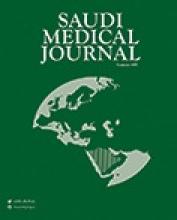3 April 2019 - One in four health care facilities around the world lacks basic water services, impacting over 2 billion people, according to a new report by WHO and UNICEF Joint Monitoring Programme for Water Supply, Sanitation and Hygiene (JMP).
The WHO/UNICEF JMP report, WASH in Health Care Facilities, is the first comprehensive global assessment of water, sanitation and hygiene (WASH) in health care facilities. It also finds that one in five health care facilities has no sanitation service*, impacting 1.5 billion people. The report further reveals that many health centres lack basic facilities for hand hygiene and safe segregation and disposal of health care waste.
These services are crucial to preventing infections, reducing the spread of antimicrobial resistance and providing quality care, particularly for safe childbirth.
“Water, sanitation and hygiene services in health facilities are the most basic requirements of infection prevention and control, and of quality care. They are fundamental to respecting the dignity and human rights of every person who seeks health care and of health workers themselves,” said António Guterres, United Nations Secretary-General. “I call on people everywhere to support action for WASH in all health care facilities. This is essential to achieve the Sustainable Development Goals.”
The WHO/UNICEF JMP report found that just half – 55 per cent – of health care facilities in Least Developed Countries (LDCs) had basic water services. It is estimated that 1 in 5 births globally takes place in LDCs, and that, each year, 17 million women in these countries give birth in health centres with inadequate water, sanitation and hygiene.
“When a baby is born in a health facility without adequate water, sanitation and hygiene, the risk of infection and death for both the mother and the baby is high,” said UNICEF Executive Director Henrietta Fore. “Every birth should be supported by a safe pair of hands, washed with soap and water, using sterile equipment, in a clean environment.”
In an accompanying report, Water, sanitation, and hygiene in health care facilities: Practical steps to achieve universal access for quality care, WHO and UNICEF researchers note that more than 1 million deaths each year are associated with unclean births. Infections account for 26% of neonatal deaths and 11% of maternal mortality.
“Imagine giving birth or taking your sick child to a health centre with no safe water, toilets or handwashing facilities,” said Dr Tedros Adhanom Ghebreyesus, WHO Director-General. “That’s the reality for millions of people every day. No one should have to do that, and no health worker should have to provide care in those circumstances. Ensuring that all health care facilities have basic water, sanitation and hygiene services is essential for achieving a healthier, safer, fairer world.”
At the 2019 World Health Assembly to be held in May, governments will debate a resolution on Water, Sanitation and Hygiene in Health Care Facilities which was unanimously approved by the WHO Executive Board earlier this year.
The WHO and UNICEF Practical Steps report provides details on eight actions governments can take to improve the WASH services in health care facilities including establishing national plans and targets, improving infrastructure and maintenance and engaging communities. These actions and resulting improvements in WASH services can yield dramatic returns on investment in the form of improved maternal and newborn health, preventing antimicrobial resistance, stopping disease outbreaks and improving quality of care.
According to UNICEF, 7,000 newborn babies died every day in 2017, mostly from preventable and treatable conditions including infections like sepsis. As part of its Every Child Alive Campaign, UNICEF is calling for governments and authorities to make sure every mother and baby have access to affordable, quality care.
Last year, Fore and Dr Tedros called on countries to strengthen their primary health care systems as an essential step toward achieving universal health coverage.
Available from: https://www.who.int/news-room/detail/03-04-2019-1-in-4-health-care-facilities-lacks-basic-water-services-unicef-who
- Copyright: © Saudi Medical Journal
This is an open-access article distributed under the terms of the Creative Commons Attribution-Noncommercial-Share Alike 3.0 Unported, which permits unrestricted use, distribution, and reproduction in any medium, provided the original work is properly cited.






